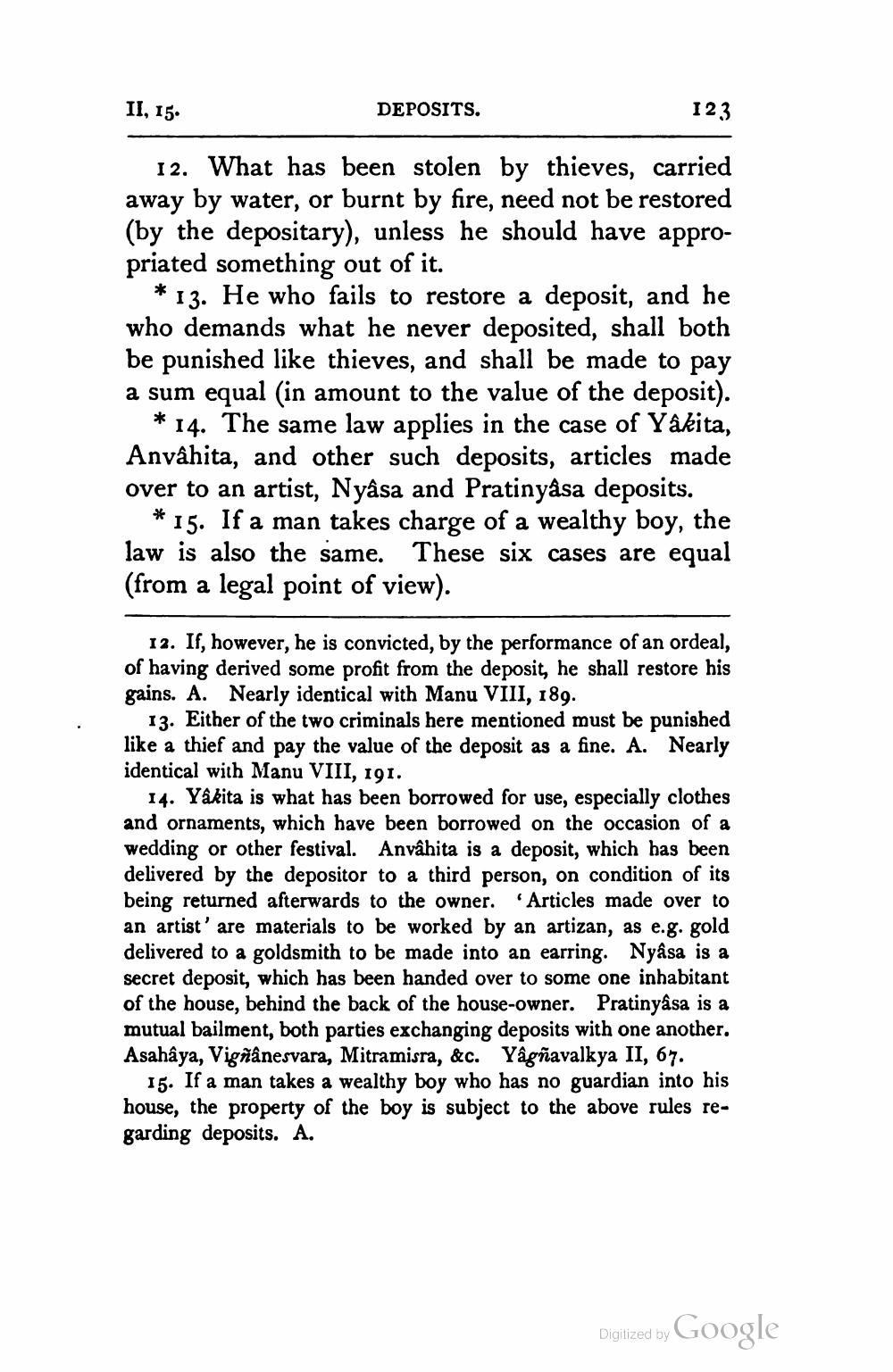________________
II, 15.
DEPOSITS.
123
12. What has been stolen by thieves, carried away by water, or burnt by fire, need not be restored (by the depositary), unless he should have appropriated something out of it.
* 13. He who fails to restore a deposit, and he who demands what he never deposited, shall both be punished like thieves, and shall be made to pay a sum equal (in amount to the value of the deposit).
* 14. The same law applies in the case of Yâkita, Anvähita, and other such deposits, articles made over to an artist, Nyâsa and Pratinyåsa deposits.
* 15. If a man takes charge of a wealthy boy, the law is also the same. These six cases are equal (from a legal point of view).
12. If, however, he is convicted, by the performance of an ordeal, of having derived some profit from the deposit, he shall restore his gains. A. Nearly identical with Manu VIII, 189.
13. Either of the two criminals here mentioned must be punished like a thief and pay the value of the deposit as a fine. A. Nearly identical with Manu VIII, 191.
14. Yakita is what has been borrowed for use, especially clothes and ornaments, which have been borrowed on the occasion of a wedding or other festival. Anvähita is a deposit, which has been delivered by the depositor to a third person, on condition of its being returned afterwards to the owner. 'Articles made over to an artist' are materials to be worked by an artizan, as e.g. gold delivered to a goldsmith to be made into an earring. Nyâsa is a secret deposit, which has been handed over to some one inhabitant of the house, behind the back of the house-owner. Pratinyasa is a mutual bailment, both parties exchanging deposits with one another. Asahaya, Vigñânesvara, Mitramisra, &c. Yâgñavalkya II, 67.
15. If a man takes a wealthy boy who has no guardian into his house, the property of the boy is subject to the above rules regarding deposits. A.
Digitized by Google




